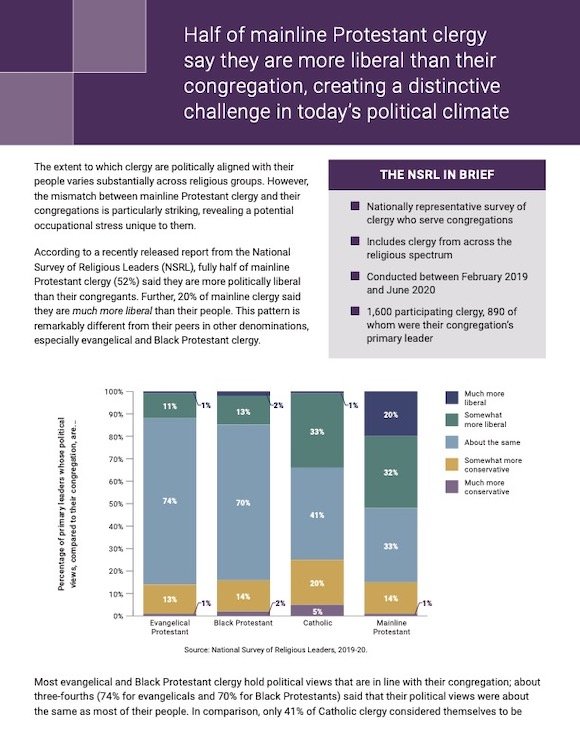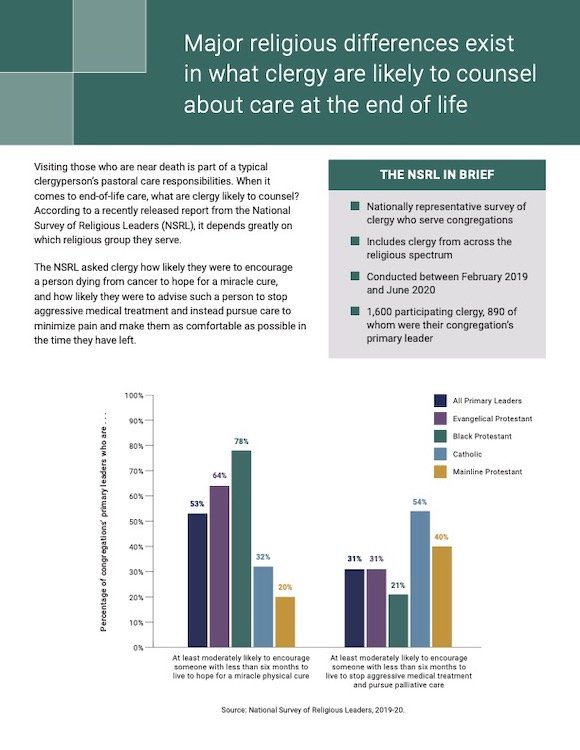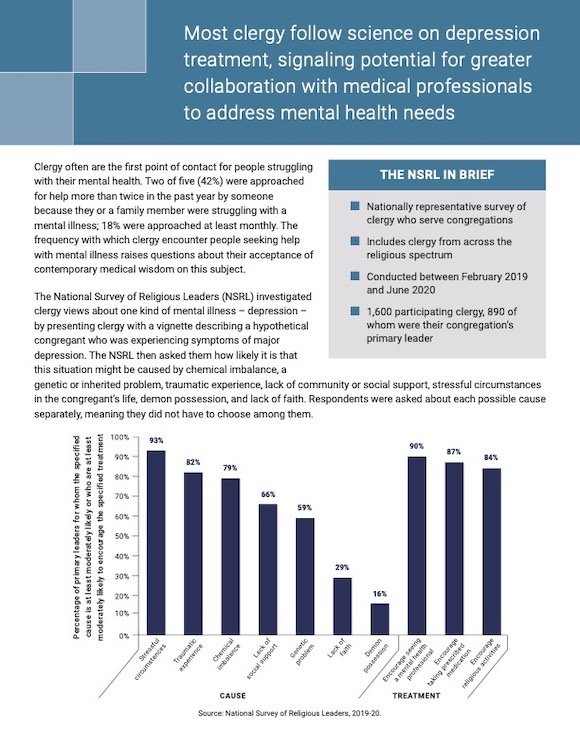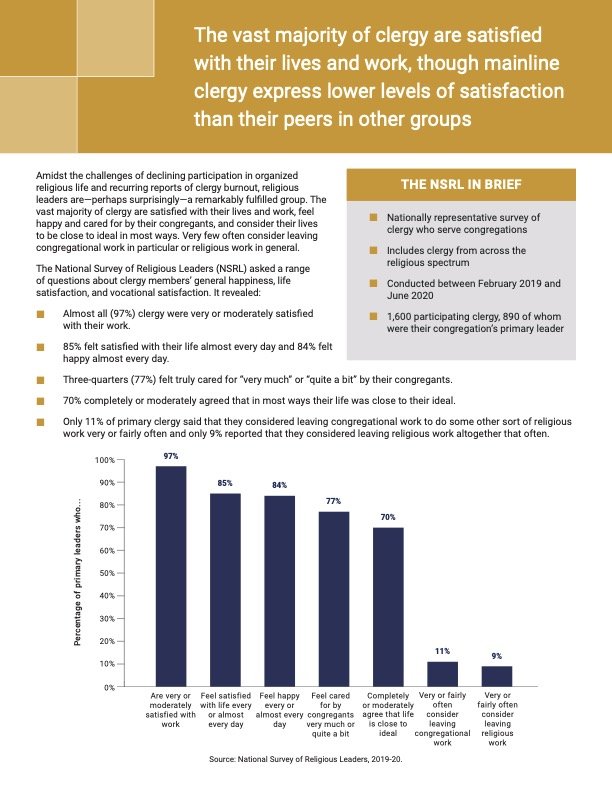
Majority of evangelical Protestant clergy reject scientific consensus on climate change
Religious differences in views about science, such as the earth’s creation or human evolution, are nothing new. But differences among clergy about the more recent issue of climate change suggest a connection to partisan political views more than longstanding theological ones.

Half of mainline Protestant clergy say they are more liberal than their congregation, creating a distinctive challenge in today’s political climate
The extent to which clergy are politically aligned with their people varies substantially across religious groups. However, the mismatch between mainline Protestant clergy and their congregations is particularly striking, revealing a potential occupational stress unique to them.

Major religious differences exist in what clergy are likely to counsel about care at the end of life
Visiting those who are near death is part of a typical clergyperson’s pastoral care responsibilities. When it comes to end-of-life care, what are clergy likely to counsel? It depends greatly on which religious group they serve.

Most clergy follow science on depression treatment, signaling potential for greater collaboration with medical professionals to address mental health needs
Clergy often are the first point of contact for people struggling with their mental health, which raises questions about their acceptance of contemporary medical wisdom on this subject.

The vast majority of clergy are satisfied with their lives and work, though mainline clergy express lower levels of satisfaction than their peers in other groups
Amidst the challenges of declining participation in organized religious life and recurring reports of clergy burnout, religious leaders are—perhaps somewhat surprisingly—a remarkably fulfilled group.